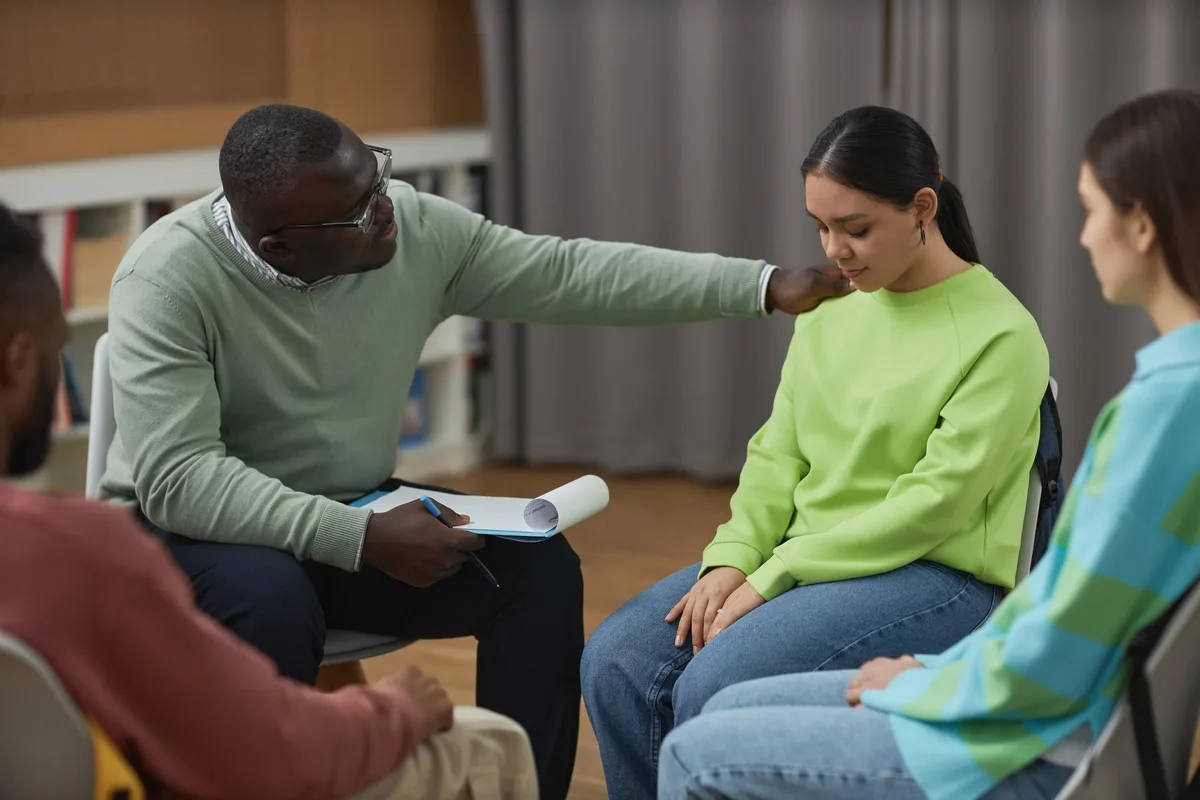24/7 Helpline:
(866) 899-111424/7 Helpline:
(866) 899-1114
Learn more about Eating Disorder Treatment centers in Colerain
Eating Disorder Treatment in Other Cities
Other Categories in Colerain

Other Insurance Options

Ceridian

Humana

Coventry Health Care

Meritain

PHCS Network

Horizon Healthcare Service

Private insurance

Choice Care Network

WellCare Health Plans

Health Choice

Kaiser Permanente

Sutter

BlueCross

Optima

Amerigroup

UnitedHealth Group

Magellan Health

Magellan

Group Health Incorporated

Medical Mutual of Ohio








Village Network – Brite Futures
Village Network – Brite Futures is a private rehab located in Saint Clairsville, Ohio. Village Netwo...

Crossroads Counseling Services
Crossroads Counseling Services offers outpatient services for individuals struggling with substance ...












































































































































































































Tri County Help Center
Tri County Help Center is a private rehab located in Saint Clairsville, Ohio. Tri County Help Center...






























































































































